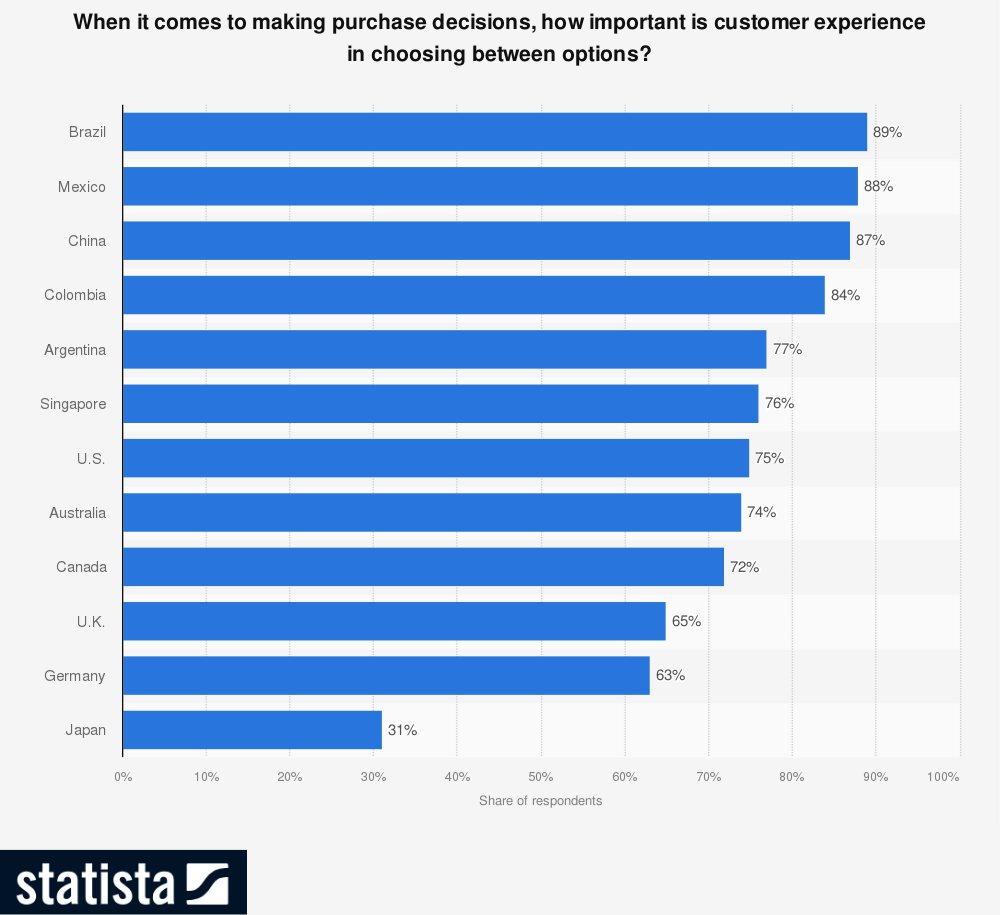Customer experience has grown as a key differentiator for companies of all kinds in today’s digital, on-demand economy. Customers want smooth, individualized service at every touchpoint since they have so many options and can switch brands easily. Long-term success is given to those who can build a solid relationship.
The importance of customer experience has increased, and this article will look at why and how a strategic focus on the customer journey may provide significant benefits. We’ll examine the relationship between knowledge and loyalty, the significance of network consistency, and strategies for collecting continuous feedback. At the end of the day, every business looking to gain a competitive edge and sustain growth should make experience-driven best practices a primary goal.
Focus on the Journey, Not Just Individual Interactions
Businesses used to be able to get away with focusing just on specific situations, such as point-of-sale transactions, and ignoring the overall experience. Customers nowadays, however, see their interaction as a continuous series of events. Throughout a journey that may include research, instruction, sales talks, delivery, service requirements, and more, they come into contact with your brand.

Examining this trip as a whole makes it easier to see issues and fix them. It necessitates tracing the whole customer workflow and identifying any gaps in the smooth fulfillment of expectations. Maybe it’s hard to access information, or communication between departments isn’t coordinated. Addressing problems rather than just complaints makes it possible to better anticipate demands.
Consistency Across Channels is Critical in Customer Experience
Customers engage with businesses through a variety of digital and physical channels, including social media, call centers, websites, apps, and storefronts, along their journey. It has become important to provide a consistent brand image and level of service quality across all platforms. Nothing destroys confidence and trust more quickly than contradictory information, protracted wait periods, or uneven policies depending on the channel.
Open communication is necessary to guarantee consistent policies and procedures across the whole organization. Frequent audits enable targeted improvements while verifying that all touchpoints adhere to baseline criteria. No matter where a ticket originated, technology makes collaboration easier to do. Every stage of the multi-channel client journey is optimized by smooth handoffs made possible by connected systems.
Prioritize Simplicity and Personalization
Keeping things simple and personalized at the same time builds trust. While providing personalization choices, interactions should be kept as simple as possible to accommodate individual preferences. Leads are turned away by upfront forms that request unnecessary information; just collect strictly essential information.
Customization fueled by prior sharing shows concern for each specific consumer. Recalling names, order histories, or service specifics promotes easy, comfortable visits every time. Consumers value having their specific requirements met in advance through individualized outreach or expert support. Nonetheless, customers always have ownership and control over willingly supplied data.
Focus on the Emotional Connection
Customers connect or disengage emotionally with brands depending on how they are treated and perceived throughout their journey. Businesses need to look beyond their functional duties and establish relationships with people. To do this, one must comprehend the factors that contribute to happiness, such as obtaining value, feeling appreciated, or connecting purchases to good emotions.
Representatives with emotional subtext-listening and empathy skills show genuine concern for customers’ problems and offer solutions that are tailored to their specific circumstances. Businesses that consider how laws affect people’s lives hone the soft skills necessary to build loyalty via shared experiences. Due to their emotional involvement, devoted customers serve as lifelong champions.
Learn from Feedback

No business ever provides flawless service right away. The most astute people accept imperfection and see mistakes as teaching moments rather than defects. Consistently collecting input via surveys, social listening, and phone tracking produces a wealth of personalized data. Particularly complaints have hints that may be used to identify dissatisfaction before they become more serious.
Hard emotions can be healed by politely acknowledging problems and responding with a remedy and clarity. Service makeovers are started by identifying reoccurring issues through sentiment and themes. To proactively serve the future of customers, regular listening keeps up with changing priorities. Establishing an open feedback culture fosters trust and shows that a business is committed to ongoing development.
Engagement and Experience Create Loyalty
The data shows an unquestionable link between engagement, brand loyalty, and great experiences. Accenture reports that up to 75% of consumers choose to do business with companies they had great experiences with over rivals. Similarly, following positive encounters, consumers are eight times more likely to perform repeat and referral business, according to TopMetrics.
Additionally, there is a clear link between customer lifetime value and channel utilization. According to Forrester, the lifetime value of interactive consumers might be up to ten times more than that of one-time purchasers who lose interest in their goods. Putting the experience first signifies financial commitments that pay off handsomely in the form of enduring loyalty over time.
Conclusion | Importance of Customer Experience
In summary, realizing the importance of customer experience should encourage companies of all sizes to make it their top priority and a pillar of their business. Creating streamlined experiences builds connections that help businesses survive in difficult circumstances. Customers who are engaged and loyal will become enthusiastic salespeople themselves when simplicity, customization, emotion, feedback, and consistency are given careful consideration across all channels. Experience is a powerful, but sometimes disregarded, growth accelerator for organic methods.








